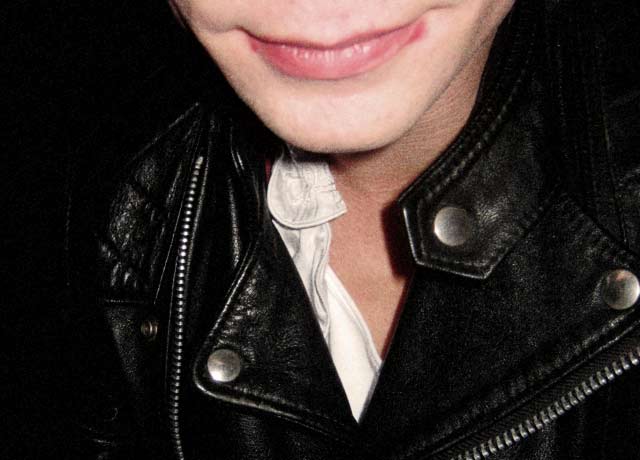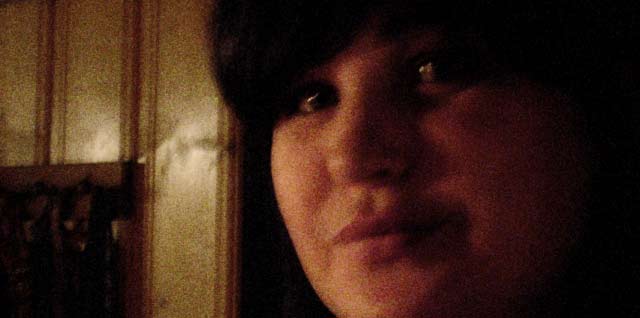Last Friday was spent at a party. A burlesque party. To better fit in with the crowd of Manson fans and strip-tease performers, I presented myself in tights and with a mustache + soul patch. I’m going to try this feature on for a couple of days. So far most people are bemused. I don’t know, is it too Wyatt Earpy? (Also, please notice the author pose I have going on. I’d be an awesome writer if I would only not have to actually write something)


Newspaper publishers should consider consolidating and outsourcing news operations — even overseas — to save money as revenues continue to shrink, the head of a major U.S. newspaper company said Monday.
→ USA Today: Outsourcing could be in journalism’s future.
In July of this year, the now-defunct Eureka Reporter reported that McClatchey has outsourced the copy editing of the Orange County register to India, outsourced the advertising design department of the Fresno Bee to India, and had intended to outsource the copy editing of the Miami Herald to India but ultimately changed its mind on that one.
→ Watching the watchers: Offshoring/Outsourcing Journalism: The Unstoppable Bad Idea?
Although caffeine does not produce with life-threatening health risks commonly associated with the use of classic drugs of addiction such as cocaine, heroin and nicotine, some caffeine users report becoming “addicted” to caffeine in the sense that they report an inability to quit or to cut down their caffeine use, they continue to use caffeine despite having medical or psychological problems made worse by caffeine. and they continue to use caffeine to avoid experiencing caffeine withdrawal symptoms.
→ John Hopkings Medical Center: Information about Caffeine Dependence


The motif of harmful sensation is a recurring idea in literature: physical or mental damage that a person suffers merely by experiencing what should normally be a benign sensation. The phenomenon appears in both traditional and modern stories.
→ Wikipedia: The motif of harmful sensation
Both McKinney and Bedard told me about people who took Tylenol or phosphorous, which also destroys the liver (and incidentally produces phosphorescent vomit). In both cases, they slept off the initial sickness and recovered for five days — during which time they decided suicide was a mistake after all and they wanted to live. But the liver had been destroyed and after five days each of them started to feel very sick, passed into deep coma, and died. “He knew it would happen and that there was nothing we could do about it,” Bedard said, “and his friends and family knew it, and for five days they sat in the hospital together waiting for it.”
→ How not to commit suicide, by Art Kleiner, 1981
I want you to know that I have a deep affection for you. I am deeply grateful for all your kindness. I wish I could have made a happier life for you. It was mostly my fault, please forgive me.
→ Suicide notes. ibid.


Jill Tracy – Evil night together:
[audio: https://monocultured.com/blog/wp-content/uploads/2008/12/01-evil-night-together.mp3]I’m looking specifically about a rejection of postmodern theory (I apologize for the broad terminology), that looks at thinkers like Foucault, Derrida, Lyotard, Deleuze, Jameson, etc etc, that accurately comprehend their arguments, and then rejects them. That is, if postmodernist thought is broadly characterized by a general rejection of singular, grand narratives and a method of critical thought that involves a disbelief in foundations — then I’m specifically interested in arguments that go against these characterizations and arguments.
→ Ask.metafilter: Anti-postmodernism for postmodernists?
